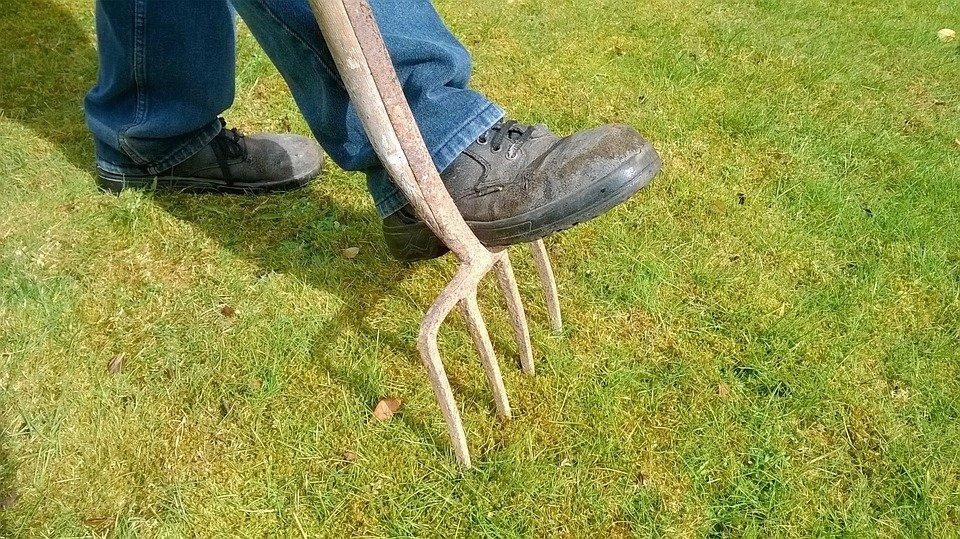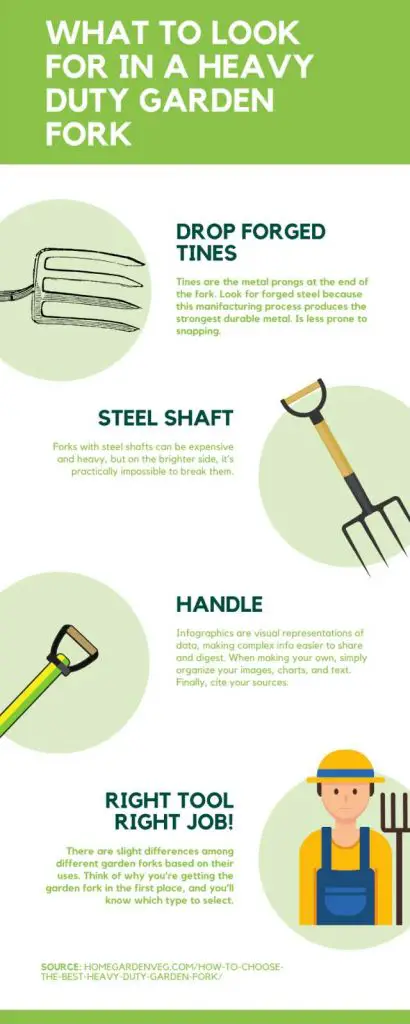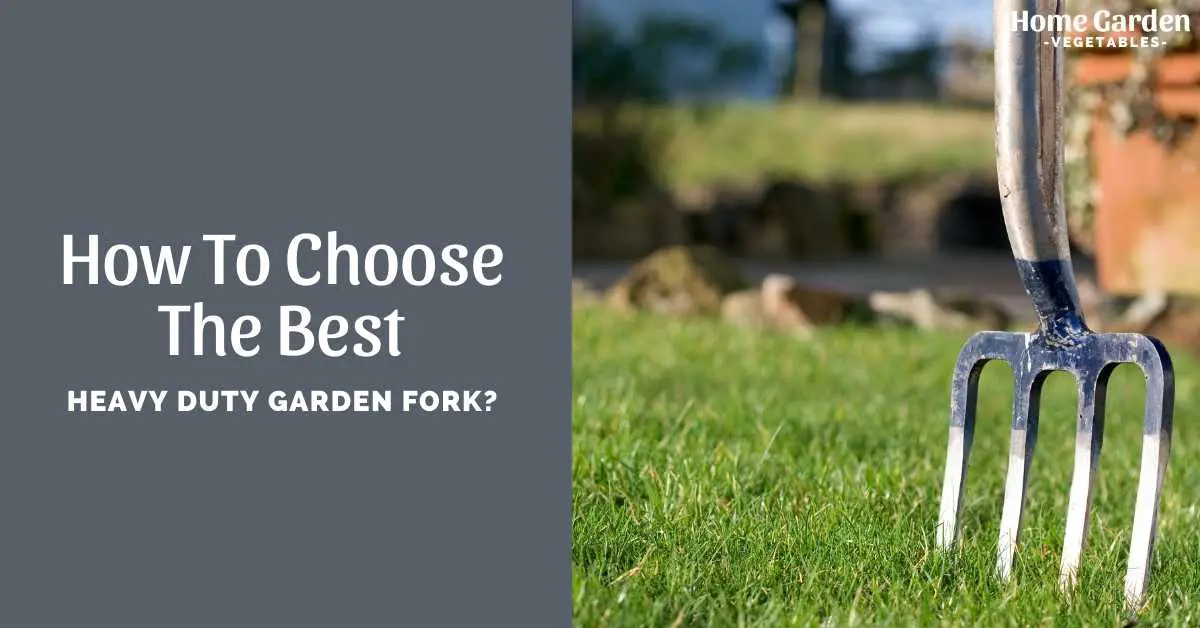Gardening is a delightful hobby for many, and it’s even more enjoyable and rewarding if you have all the right tools. A garden fork is one of the fundamental tools you’ll need, along with a shovel and rake to make even the toughest gardening chores effortless and fast. You only want the best heavy duty garden fork to make your work easier, especially if you’re a perpetual gardener.

Finding the best heavy duty garden fork is far from easy, especially since there are so many different varieties out there and so many things to consider. Other than a well-constructed fork from a decent company, you also need to consider the type. Let’s consider every aspect of the garden fork and focus on the kind that will serve you best.
Reader Poll: What online courses would interest you?
Types of Garden Forks
There are slight differences among different garden forks based on their uses. Think of why you’re getting the garden fork in the first place, and you’ll know which type to select.
Garden Fork
This is the classic design and the most popular one since it comes in handy with various tasks. It’s best for breaking and turning clay or hard soil. Four, sharp, long tines make it easier to dig challenging grounds.
Potato Fork
This is the fork you need if you plan on digging up root vegetables. Though you can also use them for digging soil before planting, they’ll have tines with blunt edges to prevent damage when lifting vegetables.
Subscribe to our newsletter!
Spading Fork
Lighter and more comfortable to handle than traditional garden forks, spading forks are best for digging and amending loose, sandy soil. You can also use them to dig root vegetables.
Border Fork
Smaller than the typical garden fork, border forks work best in small spaces, ideal for preparing a small garden bed or raised bed.
Compost Fork
Also known as a pitchfork, it is similar to the traditional garden fork, except for the slight bend in the tines, designed for scooping light material. They’re ideal for turning compost piles to speed up composting.
How To Use A Garden Fork?
Having a good quality garden fork is essential for any gardener. Garden forks have wide but not limited uses. It’s easy to get confused about the differences between a garden fork and a spade. Here are just a few common tasks.
- Dig Hard / Stony or Clay Soil – Digging Clay soil can be impossible with a garden spade but a well-sharpened fork makes the job easy.
- Dig up large roots – Digging Forks make this job easier to work around the roots
- Break Up Soil – use in combination with a spade to dig up the soil and then use the spade to remove the soil
- Digging in mulch to areas before adding plants
How To Use A Garden Fork Safely?
As with any tool its important you put safety first. Here are some following tips for garden fork tool safety.
- Point the tines (spikes) away from you at all times
- Don’t use a garden for in close proximity to others
- Allow plenty of space to work
- Clear any removable obstacles when working
- Use the correct fork for the job
- When pushing your fork in the ground keep it upright
- Digging at an angle will increase the risk of injury or the tines breaking
- Use a single foot to apply pressure to the tines to drive them into the ground
- Pull the handle towards you to loosen the soil
- lift with the knees and not the back, use the handle for stability.
- take regular breaks to avoid fatigue
What Makes The Best Heavy Duty Garden Fork

Now that you know how to pick between the different types, there are some useful points regarding the build. Cheaper forks may attract you at the first look, but you’ll regret your decision when it bends or snaps at the first encounter of hard soil. Maintaining a garden is heavy work; it’s not a job for a flimsy garden fork since they’re just not built to survive the abuse.
Here are some things you need to look for in the best heavy duty garden fork:
Fork Material
The fork, or the tines and head, are probably the most critical parts of a garden fork. Forged steel forks are the strongest and the most popular ones in the market. You can also choose stainless steel since it offers greater versatility and works well on most types of terrains.
Carbon fiber and aluminum forks are also available but will only work for light-duty chores. Though they’re lightweight and easy to handle, we wouldn’t recommend them because of their low durability.
Handle Material

It’s not just the material of tines and heads that’s important. If you’re getting the garden fork for heavy-duty use, its handle’s material is also crucial to consider. Garden forks are usually available with hardwood, fiberglass, or steel handles.
- Hardwood, preferably ash handle, is a popular choice since it’s not too heavy and will not break easily, even when digging up hard soil.
- Forks with steel handles can be expensive and heavy, but on the brighter side, it’s practically impossible to break them.
- Fiberglass handles are lightweight but are only good enough for light-duty work. Heavier tasks will easily shatter these handles.
Handle Length
Choose a garden fork with a comfortable length of the handle. You should be able to use the tool without bending a lot. Longer handles are especially useful for elderly gardeners or those with back pain since it helps maintain a good posture while working.
Construction
The assembly and construction of your heavy duty garden fork are also necessary for judging its longevity. There are different types of constructions available. Among these, the strongest ones include:
- Those that have the handle pressed into the head and riveted or bolted in place won’t break easily.
- Steel handled forks that come as a single piece of forged steel for the head and the handle are also exceptionally strong.
- Forks that have the head welded into the metal handle are also great options.

Best Heavy Duty Garden Forks
Now you know the differences between all the types of forks I am going to recommend a heavy-duty fork for each type. As a vegetable gardener, I recommend you start out with a standard heavy-duty garden fork, a border fork, and if you are growing potatoes a potato fork. Trust me it’s frustrating when digging up potatoes to constantly stick a standard fork through them.
Heavy Duty Garden Fork Recommendation – True Temper Digging Fork
The True Temper digging fork is a popular favorite heavy duty garden fork. The four tines are diamond pointed for easy soil penetration. It has a 30″ hardwood handle which not only reduces weight but also makes it strong and durable.
Heavy Duty Spading Fork Recommendation – TABOR Tools Digging Fork

This super heavy duty 4 tine spading fork from tabor tools is listed as virtually unbreakable. It’s not hard to see why when you look at the construction.
- Forged from hardened and tempered high carbon steel
- Non-Flexing Welded Steel Shaft
- Metal D Grip Handle
- Weighs 5.5lbs
Hoss Tools Garden Digging Fork – Heavy-Duty
This Heavy Duty Garden Fork has also made the list because it’s great for digging up potatoes. Built to last a lifetime and has a 5-year warranty. The weight of this is just 5.5lbs the overall length is 42″
Conclusion
In the end, it all comes down to this – you get what you pay for. Spending a little extra on a decent fork that’s going to live up to all the physical torture you put it through is definitely the wise choice. Consider all the things highlighted above and pick the best heavy duty garden fork that will serve you well through countless growing seasons. A good quality garden fork should easily last you a lifetime.

